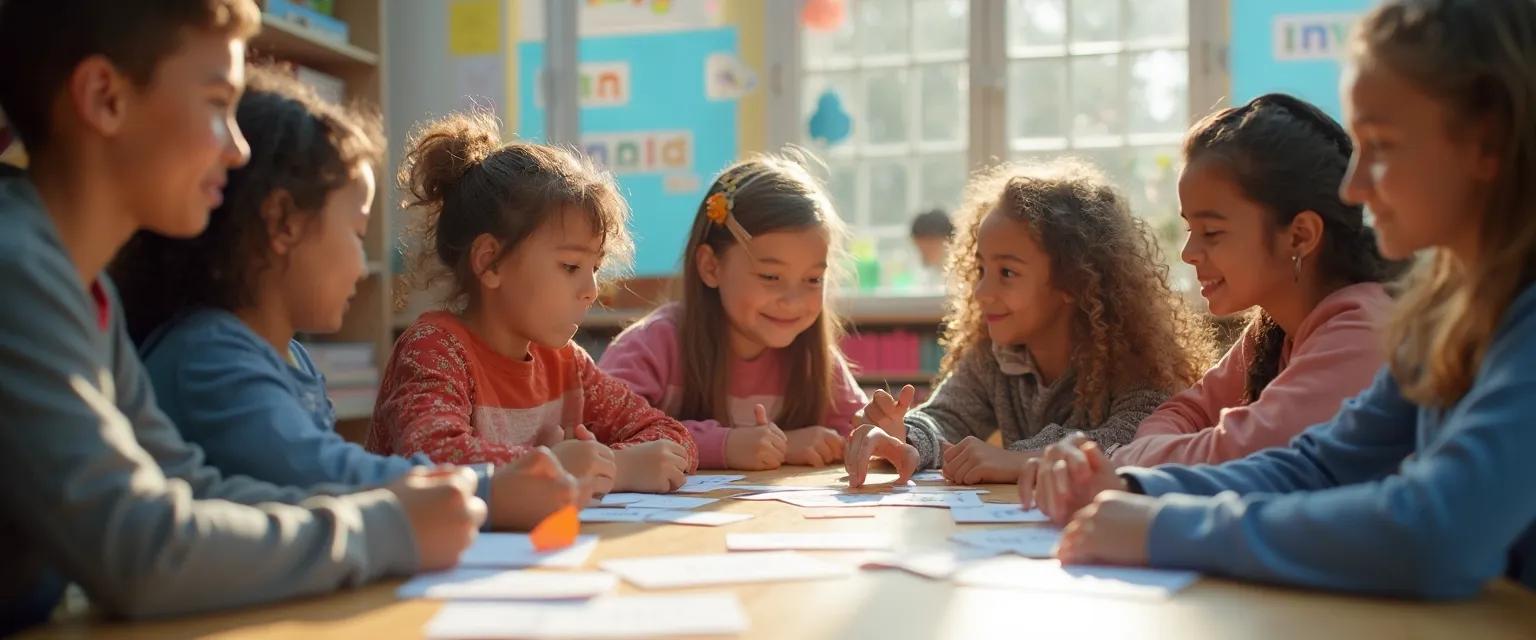7 Playful Games That Boost Self-Awareness in the Classroom
Middle school is a transformative period where students navigate complex emotions and social dynamics. Developing self-awareness in the classroom during these formative years creates a foundation for emotional intelligence that serves students throughout their lives. Quick, playful activities offer the perfect opportunity to build these skills without overwhelming students, especially those who are naturally reserved. These engaging games create natural moments of reflection while keeping the energy light and accessible. Let's explore seven playful games that take less than 10 minutes each but deliver powerful lessons in self-awareness for students.
When implemented consistently, these activities transform how students understand themselves and interact with others. Each game addresses different aspects of self-awareness in the classroom, from emotional recognition to identifying personal strengths and learning preferences. The beauty of these approaches is their simplicity – they fit seamlessly into existing routines while creating meaningful impact.
Quick Games for Building Self-Awareness in the Classroom
Game 1: Emotion Charades – Students draw emotion cards and act them out while classmates guess the feeling. This playful approach to emotional literacy helps students recognize and name feelings in a low-pressure environment. When practiced regularly, this self-awareness in the classroom activity helps students develop a richer emotional vocabulary.
Game 2: Weather Report Check-In – Students describe their current emotional state as a weather pattern (sunny, cloudy, stormy, etc.). This metaphorical approach creates psychological safety for expressing complex feelings. Teachers can use a quick weather check at the beginning of class to gauge the emotional temperature of the room.
Game 3: Emotion Freeze Dance – Students dance to music and freeze in a pose representing the emotion called out when the music stops. This embodied approach to emotional awareness techniques helps students connect physical sensations with emotional states.
To facilitate these activities effectively, create a judgment-free zone where all emotions are welcomed. Begin with simpler emotions before progressing to more nuanced feelings. These games work best when incorporated into regular classroom routines, perhaps as morning meetings or transitions between subjects.
Strength-Building Games to Enhance Self-Awareness in the Classroom
Game 4: Strength Spotting – Students work in pairs, taking turns to observe and name three strengths they notice in their partner during a simple cooperative task. This activity shifts focus from deficits to assets, building confidence while developing critical self-awareness in the classroom.
Game 5: Superhero Me – Students create a personal superhero based on their real-life strengths. They draw a simple symbol representing their superhero and share one way their "power" helps in the classroom. This playful approach helps students recognize and value their unique contributions.
These strength-building activities adapt easily to different classroom environments. In one middle school math class, a teacher reported that after implementing these games regularly, students began spontaneously acknowledging each other's strengths during group work. This positive reinforcement created a culture where students became more willing to take risks and persevere through challenges.
Implementing Self-Awareness in the Classroom Through Learning Style Games
Game 6: Learning Stations Sprint – Students rotate through quick stations with different learning approaches (visual, auditory, kinesthetic, reading/writing) for the same concept. Afterward, they reflect on which station felt most engaging and effective for them. This self-awareness in the classroom activity helps students identify their learning preferences without lengthy assessments.
Game 7: Strategy Swap – Students share their favorite study or problem-solving strategies in small groups, then try out a new approach shared by a peer. This game builds metacognitive awareness while expanding each student's learning toolkit.
To measure the impact of increased self-awareness, look for improvements in student self-advocacy, engagement, and productivity strategies. Teachers report that when students understand their learning preferences, classroom participation increases and behavior issues decrease.
Incorporating these seven games into your classroom creates multiple pathways for students to develop essential self-awareness skills. The playful, low-pressure nature of these activities makes them accessible to all students, including those who might resist more direct approaches to self-reflection. By investing just a few minutes each day in these self-awareness in the classroom exercises, you're helping students develop emotional intelligence that will serve them far beyond middle school.




